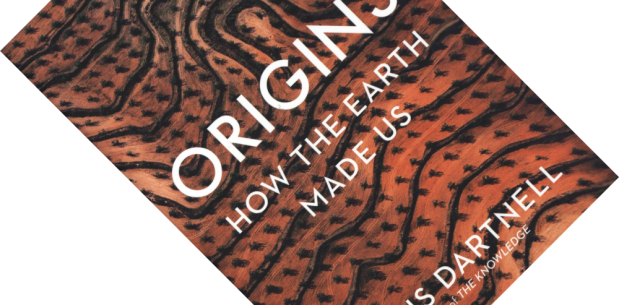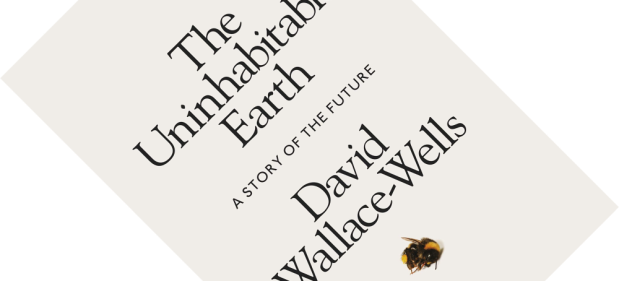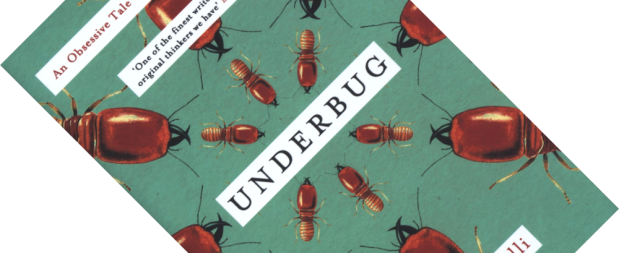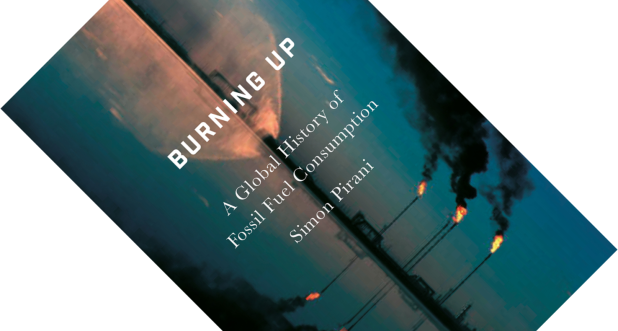The subtitle of this book could also be reworded as a question. How, indeed, do nations cope with crises such as war? With Upheaval, geography professor Jared Diamond puts forward a rather unorthodox suggestion for answering this question. Psychologists and specifically crisis therapists have gained a lot of insight into how individuals deal with and overcome crises in their personal lives. Taking a list of twelve factors that influence this, Upheaval is both a thought experiment and a piece of comparative history that tries to apply this framework to six nations that went through a crisis.
technology
Book review – Origins: How the Earth Made Us
Origins asks one question: how did the Earth make us? More accurately, like a six-year-old whose curiosity cannot be sated, there lies a series of recursive “why” questions at the heart of this book. Astrobiologist and science communicator Lewis Dartnell takes a big history look at human evolution and especially civilization, seeing how far down the explanatory rabbit hole he can go. Time and again, he grounds his answers in geology and geography. You would be forgiven for thinking this sounds like what Jared Diamond attempted more than two decades ago, but calling it Diamond-redux would not do it justice.
Book review – The Human Swarm: How Our Societies Arise, Thrive, and Fall
“Why, of all the species that have ever existed, have only us humans reached this unparalleled level of social organisation?” Sounds familiar? I indeed opened my review of E.O. Wilson’s recent book Genesis: On the Deep Origin of Societies with almost these exact words. Where that book (quite literally) fell a bit short of the intended mark, biologist Mark W. Moffett here delivers a sprawling big history book that considers almost the same question. Perhaps this should not come as a surprise, for Wilson has been Moffett’s mentor.
Book review – Anti-Science and the Assault on Democracy: Defending Reason in a Free Society
Long-term readers of this blog will be aware that the proliferation of pseudoscience and anti-scientific sentiments disturb me deeply. As someone with a scientific training, my concerns are foremost academic. But as the contributors to this edited collection wish to show, these anti-intellectual trends also impact democracy. This is perhaps nowhere more pronounced than in the USA and Anti-Science and the Assault on Democracy is therefore appropriately US-centric. It is also rather academic and scholarly in tone, more so than other works aimed at a general audience.
Book review – The Uninhabitable Earth: A Story of the Future
“It is worse, much worse, thank you think”. With these ominous words, David Wallace-Wells, deputy editor at New York magazine, starts his no-holds-barred story of climate catastrophe. Pulling together worst-case scenario predictions, he is hell-bent on scaring the living daylight out of his readers by sketching the manifold crises that loom in our near future if we let climate change develop unchecked. He proves a poetic agitator and I admire his outspokenness – I don’t think he is alarmist, but simply saying what many scientist are silently thinking. Whether this divisive approach is helpful is another question, and one for which he has been criticised. It is a price Wallace-Wells is willing to pay, because he thinks most people are not scared enough.
Book review – Nature’s Mutiny: How the Little Ice Age Transformed the West and Shaped the Present
In the minds of most people, the words “Ice Age” will invoke images of mammoths and sabertooth tigers. But historians use the phrase “Little Ice Age” to refer to a particular period in recent history when average temperatures dropped for a few centuries. The impact this had on societies was tremendous. In Nature’s Mutiny, originally published in German and here translated by the author, historian Philipp Blom charts the transformations that resulted and shaped today’s world. It is also one of the most evocative book titles I have seen this year.
Book review – A Matter of Taste: A Farmers’ Market Devotee’s Semi-Reluctant Argument for Inviting Scientific Innovation to the Dinner Table
Food and food production have become incredibly divisive topics. Industrialised agriculture exacts a heavy toll on our environment and a lot of the cheap, processed convenience food on supermarket shelves is not what you would call nutritious. But Toronto-based writer and journalist Rebecca Tucker is troubled by the response. A hazy conglomerate of “good food”, encompassing trendy phenomena such as farmers’ markets, locavorism, organic produce, and whole foods is being pushed as the only pathway to sustainable salvation. In this short book, she pulls no punches and roundly criticises the guilt-tripping, moralising, fanatical side of the foodie movement, while also exploring some alternatives. And it’s about time, because, as she shows, feeling good is not the same as doing good.
Book review – Underbug: An Obsessive Tale of Termites and Technology
When it comes to social insects, ants and bees get all the love. But, if you pardon the pun of the book’s title, termites are a bit of an underbug. While finishing up a previous writing assignment, author Lisa Margonelli got on the trail of the termite sometime in 2008 and spend the next decade obsessing over them. Tailing various scientists and sitting in on their day-to-day work, she here spins a wide-ranging tale about termites and the research they have inspired. The result is a hypnotic book that ranges well beyond this humble insect.
Book review – Energy: A Human History
The story of human progress is intimately entwined with that of energy. Pulitzer-prize winning author Richard Rhodes here takes the reader on a 400-year tour of energy generation, shining a light on the many forgotten figures whose ingenuity and inventions were instrumental in the many energy transitions.
Book review – Burning Up: A Global History of Fossil Fuel Consumption
Fossils fuels have powered civilization since the Industrial Revolution, and their consumption has exploded in the last few decades. But for all the prosperity that coal, gas, and oil have brought, there are many downsides, not least amongst these climate change. So how did we get here? Usual explanations point at individual consumption and population growth, and I would be quick to agree. With Burning Up, Simon Pirani, a visiting research fellow at the Oxford Institute for Energy Studies, basically says “not so quick, things are not that simple” and provides a deeply researched history of fossil fuel consumption.










